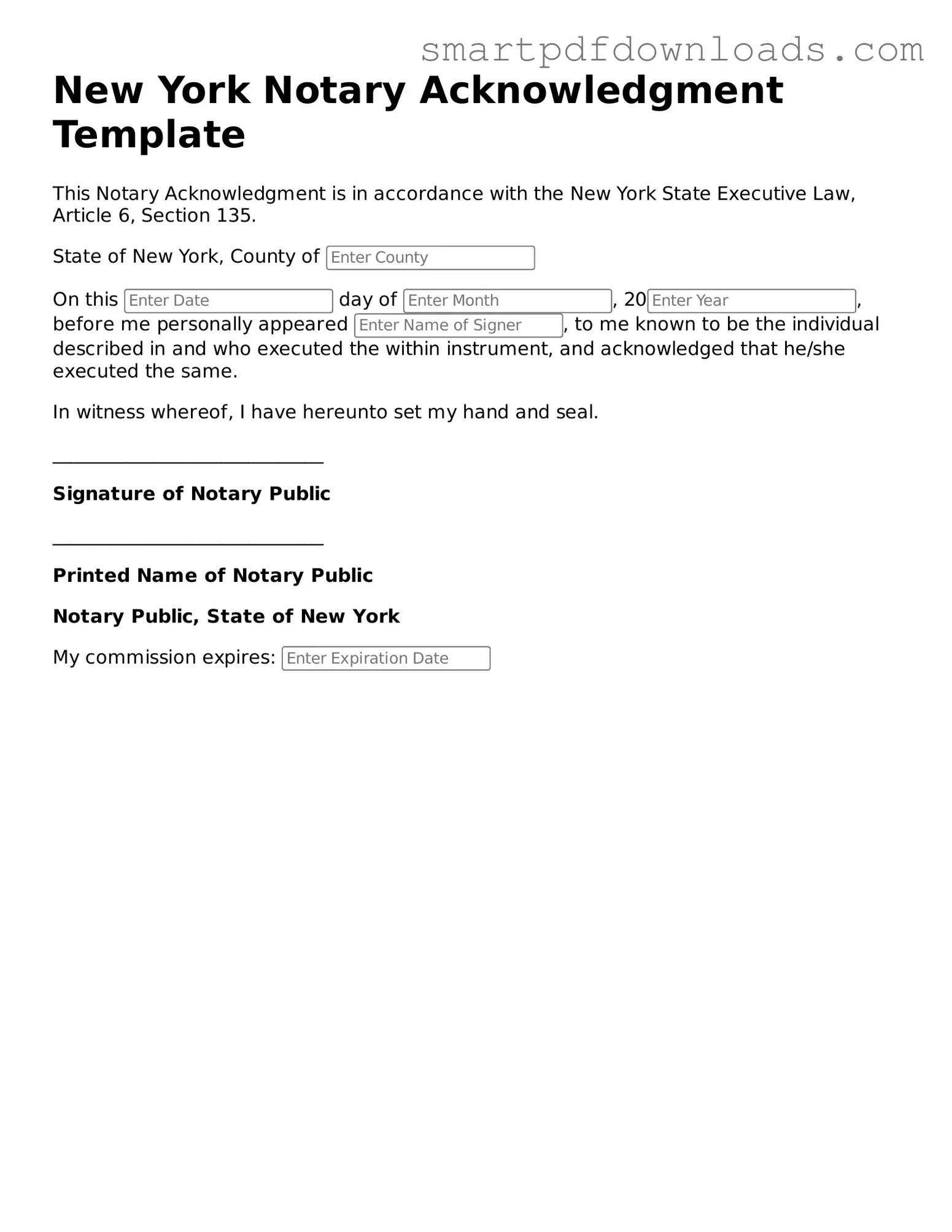Legal Notary Acknowledgement Form for the State of New York
The New York Notary Acknowledgement form is a legal document that verifies the identity of a signer and confirms their willingness to sign a specific document. This form is essential for ensuring the authenticity of various legal transactions. Understanding its purpose and requirements can help individuals navigate the notarization process with ease.
Edit Notary Acknowledgement Online

Legal Notary Acknowledgement Form for the State of New York
Edit Notary Acknowledgement Online

Edit Notary Acknowledgement Online
or
⇓ PDF File
Finish the form and move on
Edit Notary Acknowledgement online fast, without printing.